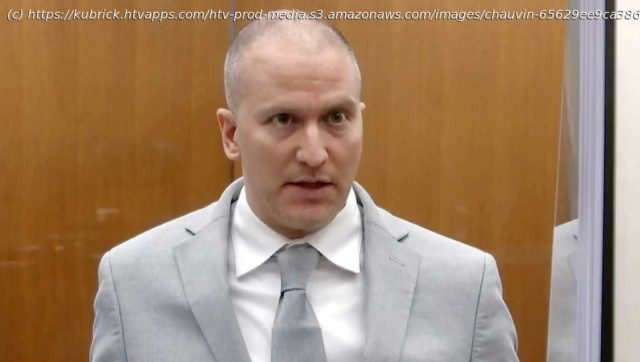An attorney for the former Minneapolis police officer convicted of murdering George Floyd says his family has been kept in the dark
An attorney for Derek Chauvin, the former Minneapolis police officer convicted of murdering George Floyd, said Saturday that Chauvin’s family has been kept in the dark by federal prison officials after he was stabbed in prison.
The lawyer, Gregory M. Erickson, slammed the lack of transparency by the Federal Bureau of Prisons a day after his client was stabbed on Friday by another inmate at the Federal Correctional Institution in Tucson, Arizona, a prison that has been plagued by security lapses and staffing shortages.
A person familiar with the matter told The Associated Press on Friday that Chauvin was seriously injured in the stabbing. The person spoke to the AP on condition of anonymity because they were not authorized to publicly discuss the attack. On Saturday, Brian Evans, a spokesperson for the Minnesota attorney general’s office, said: « We have heard that he is expected to survive. »
Erickson said Chauvin’s family and his attorneys have hit a wall trying to obtain information about the attack from Bureau of Prisons officials. He said Chauvin’s family has been forced to assume he is in stable condition, based only on news accounts, and has been contacting the prison repeatedly seeking updates but have been provided with no information.
« As an outsider, I view this lack of communication with his attorneys and family members as completely outrageous, » Erickson said in a statement to the AP. « It appears to be indicative of a poorly run facility and indicates how Derek’s assault was allowed to happen. »
Erickson’s comments highlight concerns raised for years that federal prison officials provide little to no information to the loved ones of incarcerated people who are seriously injured or ill in federal custody. The AP has previously reported the Bureau of Prisons ignored its internal guidelines and failed to notify the families of inmates who were seriously ill with COVID-19 as the virus raged through federal prisons across the U.S.
The issue around family notification has also prompted federal legislation introduced last year in the U.S. Senate that would require the Justice Department to establish guidelines for the Federal Bureau of Prisons and state correctional systems to notify the families of incarcerated people if their loved one has a serious illness, a life-threatening injury or if they die behind bars.






